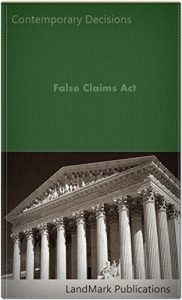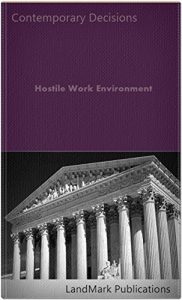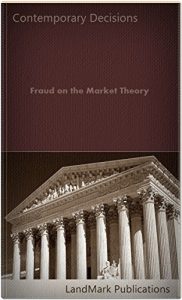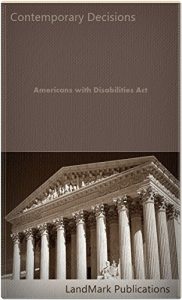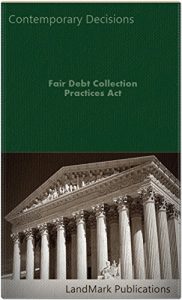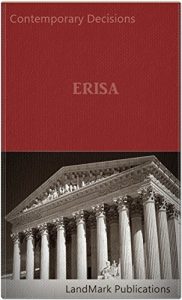THIS CASEBOOK contains a selection of 203 U. S. Court of Appeals decisions that analyze, discuss and apply provisions of the False Claims Act. The selection of decisions spans from 2005 to the date of publication.
The FCA was enacted in 1863 to combat fraud by defense contractors during the Civil War. See, e.g., Paul E. McGreal & DeeDee Baba, Applying Coase to Qui Tam Actions Against the States, 77 Notre Dame L.Rev. 87, 121 (2001) ("Army officers had reported numerous incidents where the federal government had paid for certain supplies only to receive defective goods or nothing at all."). Consistent with its origin, the archetypal FCA claim involves a factually false request for payment from the government, as when a contractor delivers a box of sawdust to the military but bills for a shipment of guns. See Michael Holt & Gregory Klass, Implied Certification Under the False Claims Act, 41 Pub. Cont. L.J. 1, 16 (2011). Over time, courts have extended the FCA's reach to "legally false" claims, those in which "a party certifies compliance with a statute or regulation as a condition to governmental payment," but is not actually compliant. Mikes, 274 F.3d at 697. In 1994, the Federal Court of Claims broadened the definition of a false claim even further to include "impliedly false" claims, where the submission of the claim itself is fraudulent because it impliedly constitutes a certification of compliance. See Ab-Tech Constr., Inc. v. United States, 31 Fed.Cl. 429, 434 (1994), aff'd without written opinion, 57 F.3d 1084 (Fed.Cir.1995). Other courts adopting this theory of liability, including [the second circuit], have warned about its potentially "expansive" reach. See, e.g., Mikes, 274 F.3d at 699 ("[C]aution should be exercised not to read this theory expansively and out of context."). Bishop v. Wells Fargo & Co., 823 F. 3d 35 (2nd Cir. 2016).
From its enactment, the FCA has encouraged private citizens to report fraud by promising a percentage of any eventual recovery. See McGreal & Baba supra, at 121. Under the current version of the statute, each false claim exposes the perpetrator to "a civil penalty of not less than $5,000 and not more than $10,000 ... plus 3 times the amount of damages which the Government sustains because of the act of that person." 31 U.S.C. § 3729(a)(1). Qui tam relators are eligible to receive up to 30% of the government's total recovery, in addition to any expenses, fees, or costs incurred in bringing the suit. 31 U.S.C. § 3730(d)(2). Bishop v. Wells Fargo & Co., ibid.
. . .
The FCA was enacted in 1863 to combat fraud by defense contractors during the Civil War. See, e.g., Paul E. McGreal & DeeDee Baba, Applying Coase to Qui Tam Actions Against the States, 77 Notre Dame L.Rev. 87, 121 (2001) ("Army officers had reported numerous incidents where the federal government had paid for certain supplies only to receive defective goods or nothing at all."). Consistent with its origin, the archetypal FCA claim involves a factually false request for payment from the government, as when a contractor delivers a box of sawdust to the military but bills for a shipment of guns. See Michael Holt & Gregory Klass, Implied Certification Under the False Claims Act, 41 Pub. Cont. L.J. 1, 16 (2011). Over time, courts have extended the FCA's reach to "legally false" claims, those in which "a party certifies compliance with a statute or regulation as a condition to governmental payment," but is not actually compliant. Mikes, 274 F.3d at 697. In 1994, the Federal Court of Claims broadened the definition of a false claim even further to include "impliedly false" claims, where the submission of the claim itself is fraudulent because it impliedly constitutes a certification of compliance. See Ab-Tech Constr., Inc. v. United States, 31 Fed.Cl. 429, 434 (1994), aff'd without written opinion, 57 F.3d 1084 (Fed.Cir.1995). Other courts adopting this theory of liability, including [the second circuit], have warned about its potentially "expansive" reach. See, e.g., Mikes, 274 F.3d at 699 ("[C]aution should be exercised not to read this theory expansively and out of context."). Bishop v. Wells Fargo & Co., 823 F. 3d 35 (2nd Cir. 2016).
From its enactment, the FCA has encouraged private citizens to report fraud by promising a percentage of any eventual recovery. See McGreal & Baba supra, at 121. Under the current version of the statute, each false claim exposes the perpetrator to "a civil penalty of not less than $5,000 and not more than $10,000 ... plus 3 times the amount of damages which the Government sustains because of the act of that person." 31 U.S.C. § 3729(a)(1). Qui tam relators are eligible to receive up to 30% of the government's total recovery, in addition to any expenses, fees, or costs incurred in bringing the suit. 31 U.S.C. § 3730(d)(2). Bishop v. Wells Fargo & Co., ibid.
. . .
